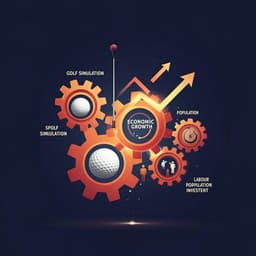
Business
Implications of war on the food, beverage, and tobacco industry in South Korea
M. Bhadra, M. J. Gul, et al.
This study, conducted by Madhusmita Bhadra, M. Junaid Gul, and Gyu Sang Choi, explores the aftermath of the Russia-Ukraine war on South Korea's Food, Beverage & Tobacco industry, revealing a concerning decline in stock returns and the urgent need for greater food self-sufficiency.
Related Publications
Explore these studies to deepen your understanding of the subject.







